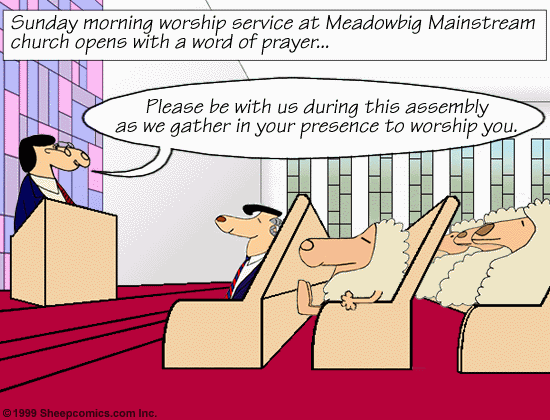
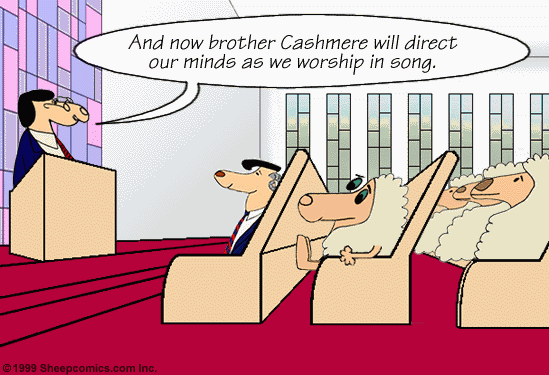
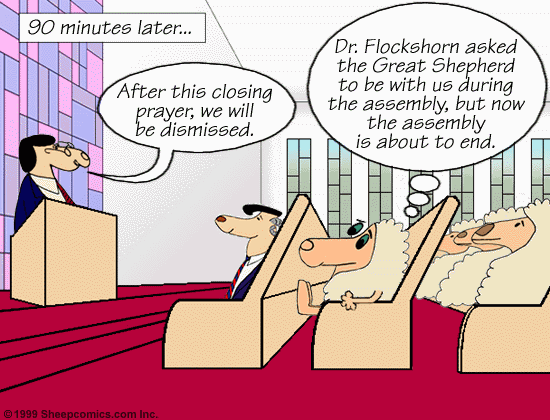
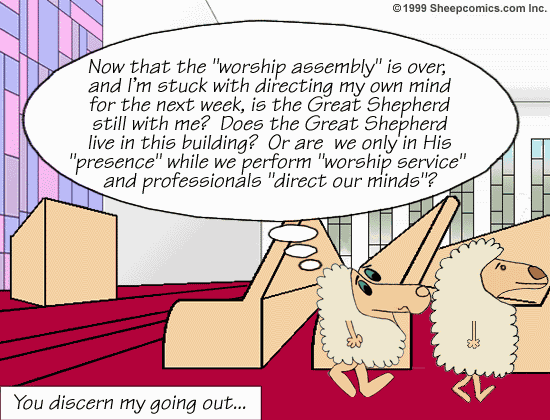
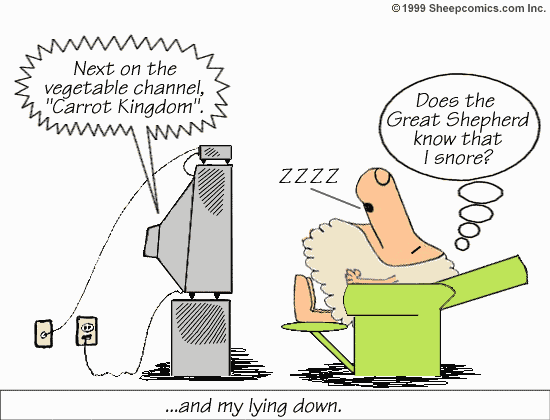


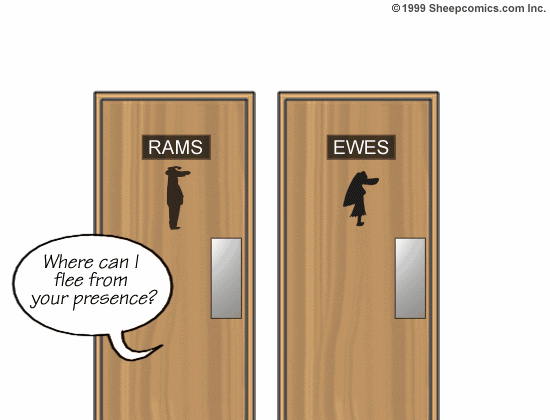
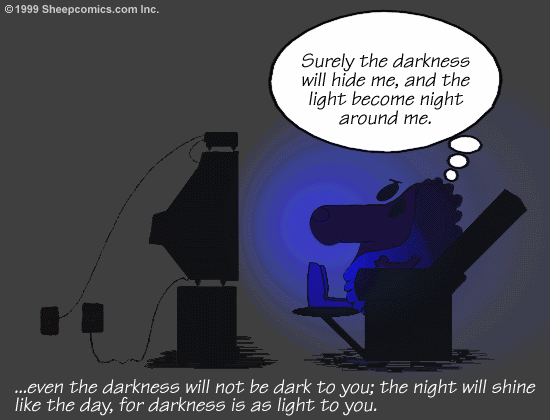



Editorial Notes
This comic strip (or comic scroll) was inspired by some beautiful wood carved letters I saw on the wall outside the main entrance to the "sanctuary" of a church I visited about a year ago. There were about two sentences carved in a large wood plaque. I donít remember the entire carving, but I remember it started with, "As you leave His presenceÖ". It was some sort of thought one was to keep in his or her mind after leaving "His" presence. Leaving "His" presence, it seemed, was the same as walking out this door after the Sunday morning worship service. I assumed that "His" presence meant Godís presence, and then I wondered how one could possibly leave the presence of God.
Traditional church systems sure know how to send a mixed message about God. One example is the tendency to want to localize God to Sunday morning "worship service". You can go to a church on Sunday morning and hear a leader pray something like, "Please accept our worship as we gather in your presence" (as if God lives in the building), and then go to a doctrine class at the same church and hear that God is "omnipresent, omnipotent, and omniscient."
Iím glad I read the Bible. Otherwise, I could have become very confused about the nature of God. At church, I was taught in class that God knows everything, is everywhere, and has the power to do anything. However, on Sunday morning I hear leaders pray, "Please be with us during this assembly." Does this make sense? If we didnít ask God to be with us, would He not know what we were doing? Or is what we do on Sunday morning so complicated and hazardous that we are asking divine assistance just to survive it?
Then I started asking myself more questions. Why would I just pray for God to be with me "during this assembly?" All I need to do "during the assembly" is sit and be quiet, unless someone "directs my mind" to do something like sing a song. There isnít much bad that can happen during the typical Sunday worship assembly. (Maybe thatís the point. We only want God to see us when weíre sitting quietly behaving ourselves, and once a week we gather to prove we can do it. Perhaps we think that God wouldnít like us if He saw us all the time.)
The other 99% of the week is a different story. Do I want God to be with me after the assembly too? Do I want God to be with me when Iím driving on the freeway? How about at work when Iím having trouble meeting a deadline or Iím not getting along well with co-workers? What about at home during my "downtime"? Is there a time when I am not in Godís presence?
Even the phrase "Godís presence" is almost illogical. God is present; that is all. Given that fact, what are we going to do, ignore Him or try to please Him?
Psalm 139 talks about Godís presence. The "comic scroll" below was inspired by the sentences carved in wood I saw at a church, and by how their message contrasted with the message of Psalm 139. You might even want to turn to Psalm 139 and read it before or after you read the comic below.